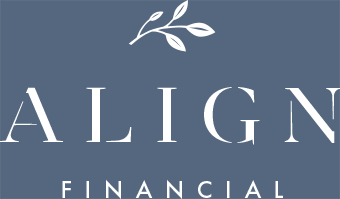If you’ve been following the news lately, you’ve probably seen or heard the term inflation once or twice. In May, the Consumer Price Index (“CPI,” a popular measure of U.S. inflation) rose 5% year over year, its largest increase since June 2008. Now, economists and talking heads alike are speculating about what this uptick may mean for financial markets and the economy.
I believe the adage “out of sight, out of mind” applies when it comes to inflation. Since inflation has remained persistently low for the last several years, many of us have forgotten what it means–not only for our bank balances, but for our future nest eggs.
If recent headlines have left you with more questions than answers, you’re in the right place. The good news is regardless of how prices move, there are ways you can prepare to dampen the potential impact on your finances.
What Is Inflation?
First, it’s important to understand what inflation is. In economics, it refers to a general rise in prices over time and consequently, a decline in purchasing power per unit of currency. Prices rise when demand exceeds supply in an economy, which typically happens when economic growth is strong (but not always).
Similarly, when growth slows, prices tend to fall. While there’s a good deal of academic theory behind inflation, the bottom line is when prices rise across the board, our dollars don’t go as far as they used to.
Some inflation is normal and can be a sign of a healthy economy. Up until recently, the Federal Reserve targeted an inflation rate of 2 percent as part of its dual mandate assigned in 1977. Now, the Fed aims to maintain an average inflation rate of 2 percent over time.
Theoretically, when consumers can reasonably expect an average inflation rate of 2 percent over the long run, they’re incentivized to spend and invest their money today, while their dollars are worth more. This, in turn, contributes to a well-functioning economy.
Why Is High Inflation Problematic?
If you were alive in the 1970s, you may remember inflation spiraling out of control and hitting double digits on two separate occasions. Overall, inflation averaged 7.1% during the decade, according to research from Charles Schwab.
Many factors contributed to high inflation in the 1970s, including the dollar’s departure from the gold standard, ramped-up government spending on the Vietnam War, and surging oil prices. If you still associate high inflation with long lines at the gas pump and generally bleak conditions, you’re not alone.
Fortunately, monetary policy has changed since then, and it’s unlikely that 1970s-era rate will return. However, it has proven difficult to predict, which means prices can still rise quickly and unexpectedly. If this happens and your paycheck stays the same, you’re likely to feel the hit to your bank account. Plus, with savings accounts paying near-zero interest rates currently, high inflation can make your cash worth even less over time.
Furthermore, the measures the Fed takes to combat inflation–for example, raising interest rates–can potentially halt economic growth, or worse, lead us into another recession. No one wants that, including the Fed. Yet even the expectation of rising inflation can have negative effects. Businesses may raise their prices in anticipation, and markets may react with volatility.
Why Is Inflation Rising?
Following a long period of almost nonexistent inflation, price increases are now being driven by a combination of factors resulting from the coronavirus pandemic.
First, the Fed has made a commitment to keep interest rates low until unemployment falls and inflation “is on track to moderately exceed 2 percent for some time.”
Second, the U.S. government has pumped an unprecedented amount of stimulus dollars into the economy in an effort to boost growth. And third, there’s a lot of pent-up consumer demand that’s being released as the economy reopens. Couple these factors with ongoing supply chain issues, and it’s no surprise prices are rising.
That said, there are a few important caveats to keep in mind when it comes to the recent uptick in inflation. For one, CPI–while the most common proxy for inflation–isn’t necessarily reflective of your personal inflation rate. Everyone’s basket of goods and services looks different; CPI merely measures average consumer spending. So when the media reports a jump in CPI, don’t assume your expenses are increasing at the same rate.
In addition, prices aren’t currently rising at the same rate across sectors. For example, used car prices rose 29.7% compared with last year, while clothing costs 5.6% more, according to a recent CNBC article. Prices of housing and remodeling supplies–notably lumber–are also soaring.
Lastly, many economists, including Fed Chair Jerome Powell, believe the recent rise in inflation will be short-lived as the economy adjusts post-pandemic. Though some may take comfort from his statement, no one knows exactly when prices will stabilize. Meaning, there’s a chance we’ll be experiencing sticker shock for most of the summer.
How You Can Prepare for Rising Inflation
First of all, there’s no reason to change your spending habits just yet. If you can wait until prices stabilize (for example, you don’t need a new car immediately), you may want to hold off on making certain purchases for now. However, if you desperately need that summer vacation you have planned, by all means take it–even if it means spending a little more along the way.
If inflation persists, keep an eye on the prices of big-ticket items like housing, healthcare, and college tuition. These are the expenses that can potentially move the needle over time and impact your financial plan if prices rise significantly. You may want to work with your financial advisor to plan for these types of expenses, if necessary.
If you’re planning for retirement, you’ll want to make sure your long-term investments include traditional inflation hedges like equities and real estate. This will help ensure you can maintain your current standard of living down the road.
Finally, high inflation can potentially lead to higher borrowing costs—something to be aware of if you’re planning to finance a large purchase, like a new home. Again, these things are difficult to predict, to say the least. However, a little preparation can go a long way when it comes to the possibility of higher-than-average inflation.
Bottom Line: Don’t Let Inflation Keep You Up at Night
Uncertainty can be scary, and no one knows exactly how inflation will impact us going forward. While it’s natural to want to avoid the pain of financial loss (even paper losses), it’s important not to panic. Instead, make sure your financial plan is up to date, and if you don’t have one, consider working with a trusted advisor to develop a plan.
When it comes to securing your financial future, I agree with Carl Richards: “Nothing matters anywhere near as much as your behavior.” In other words, inflation (or any other outside force, for that matter) can’t derail a sound financial plan, as long as you stick to it. If Align Financial can help you develop a financial plan to secure your financial future, please contact us. We’d love to hear from you.













